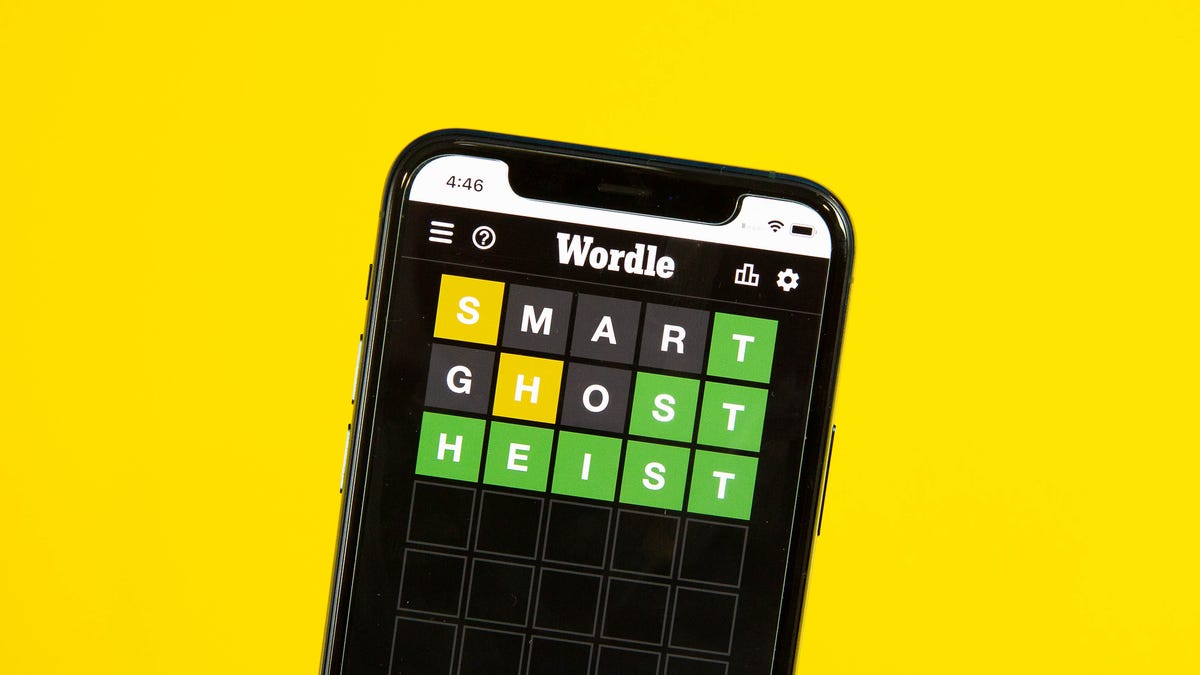About 100 years ago — or, that’s how long it feels — we were all together, playing Wordle. Well, we weren’t technically together. We were in sunny places, snowy places, other countries, commuting, staying at home. We were together, though. In a sense. And we weren’t screaming.
Little score grids popping up everywhere, instead of historical face filters or randomly generated AI art, or snippets of chatbot-generated text. These grids, these scores. Wordle swept through an Omicron winter where flights were canceled, trips postponed, returns to work delayed again. It was like bread-baking 2.0. Just another viral pandemic moment.
The game was acquired by The New York Times in early February, and I was ready to say goodbye to a moment I always suspected would end sometime. And it did: Scores stopped being shared. Players dwindled. I eventually stopped playing regularly sometime in the late spring, I don’t know when.
I want to go back to that moment. I remember what was going on: I was depressed. I felt disconnected from friends, from family, from anyone. I put random things on Facebook so I could feel like I did something, for just a few moments, to reach out. For a while, it was random food shots of me putting chili crisp in oatmeal. Then it was Wordle scores. I found a little community of old friends who wrote back and shared theirs. We nodded our virtual heads. We connected, just a bit.
These moments may seem frivolous. They’re not. At the end of 2022, where are we? Twitter has been acquired, gutted, and is slowly being transformed. Migrations away from Twitter (or Facebook) to constellations of new platforms, strange new worlds, places like Mastodon or Hive or Post. Social media, at the end of 2022, feels like it’s either on its last legs or struggling to be reborn as something strange, new and — yes, to me — alien.
With everything that 2022 ended up becoming, something like Wordle feels like a ridiculous little footnote, utterly unimportant, perhaps completely pointless. I still think of it as a little spark of connection. A hope for making people feel like they can reach out to each other without hating or escalating or destroying. The whole original idea of social media that seemed so appealing, maybe, a long time ago, was that it could bring familiar faces together and, for just a few moments, create a sensation of connection. My games of Wordle, along with a few special trips into VR with friends, and a few lingering Zooms, were some of the few moments that did that. For all we’re rushing out to see people and connect again in the real world, we forget the moments when connecting virtually actually worked.
I read an article in The Atlantic the other day that spoke deeply to me, about how we’re haunted by the ghosts of 2019. I am. Life in 2022, trying to go back to “normal,” has felt uncanny. I commute now. I’ve gone on flights. I’ve gone to the UK again. None of it felt normal. Some of it felt familiar. Echoes of the old, overlaps of the new.
Slowly but surely, we’re returning to a strange version of the world we once knew — or trying to. How do I move forward here?
I hope, in our rush to return to “normal,” we stay connected to the strange rituals that brought us together in our lowest moments. It doesn’t have to be Wordle — that’s just a word game gone viral. But as we reinvent how we communicate online — via social media or metaverses — I’ll take any help I can get. Show me how we could reconnect and not feel alienated. Wordle was lightning in a bottle, and even though I’ve said goodbye to what it was in that moment, I’ll always be searching for that feeling again.
